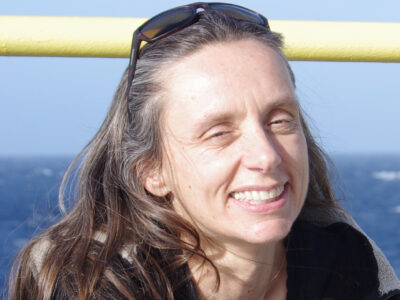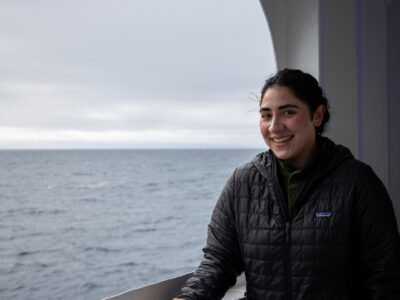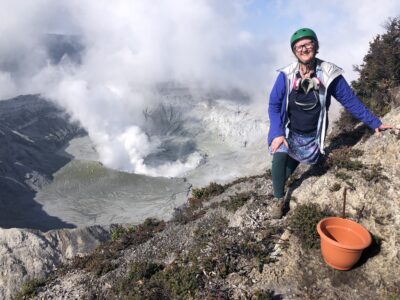February 11 is the International Day of Women and Girls in Science. This U.N.-designated day aims to accelerate gender equity and improve access to and participation in science for women and girls.
While the last few decades have produced many efforts to inspire women and girls to engage in science, a gender gap remains. Women represent only 33% of researchers. They receive smaller research grants than their male colleagues. They tend to have shorter, less well-paid careers, and are less likely to have their work published in high-profile scientific journals.
This unfortunate trend is also true in climate science, which is concerning, since women around the world will bear the brunt of climate change impacts.
The relative scarcity of female climate scientists makes it even more impactful when the world loses one. Columbia Climate School is still mourning the loss of Lisa Goddard, a game-changing climate scientist who passed away in January. Goddard was the longtime director of Columbia’s International Research Institute for Climate and Society (IRI). Her work focused on developing medium-term climate forecasts (from several weeks to several years out), and on applying these forecasts toward practical decisions in agriculture, public health, emergency planning and energy production in developing countries.

When Goddard began her career, she was sometimes the only woman in the classroom. Fortunately, that’s no longer true today. She noted in a 2021 interview that, “The number of amazing women in the field has really increased, especially over the last decade.” No doubt Goddard helped to pave the way for some of them.
Read about how IRI’s Ashley Curtis and Gloriose Nsengiyumva are among the researchers continuing Goddard’s work of bringing climate services to developing countries.
Columbia Climate School is home to many incredible woman scientists. You can meet a few of them in the flipbook below, and the video at the top of this post.
Climate School researchers are also helping to cultivate a new generation of diverse scientists through programs like the Secondary School Field Research Program and our Next Generation of Hudson River Educators. On March 12, summer interns from the Next Gen program will be sharing the activities they developed to teach people about the Hudson River during the Intrepid Museum’s Girls in Science and Engineering Day.

Of Water and Women
While the International Day of Women and Girls in Science promotes women in every branch of STEM, the 2022 theme is “Equity, Diversity, and Inclusion: Water Unites Us.” It is meant to recognize the role of women and girls in science not only as beneficiaries, but also as agents of change, in accelerating progress toward the goal of ensuring access to clean water and sanitation for all by 2030.
Shannon Márquez, dean of Undergraduate Global Engagement at Columbia University and a faculty member of the Columbia Water Center, is not only one of those agents of change, but also someone who pushes for gender equity along with access to water, sanitation, and hygiene. In an interview with State of the Planet, she explains how access to clean water and sanitation can empower women and girls, enabling better health, education, and economic opportunities.

Learn more about a few of our other woman researchers who are helping to ensure access to safe water:
- Indrani Pal, who lectures about water resources and climate in our M.S. in Sustainability Management program, recently identified how a data-driven approach would enhance the state’s ability to predict water supplies.
- Elise Myers, a biological oceanographer and doctoral candidate at Columbia’s Lamont-Doherty Earth Observatory, studies the microbial life of the Hudson River to gain a better understanding of how fecal bacteria contaminates, lives, and dies in the estuary.
- At the Columbia Water Center, Paulina Concha Larrauri works on projects that promote equal access to clean water, reduce risks to companies and disadvantaged populations, and protect the environment.
- Radhika Iyengar of Columbia’s Center for Sustainable Development helped to develop innovative ways to inform residents in Central India about drinking wells that contain high levels of fluoride, which can lead to tooth and joint problems over the long term.
#February11 is celebrated globally in different ways, big and small. Your action will add to the collective voices on equality in science.



